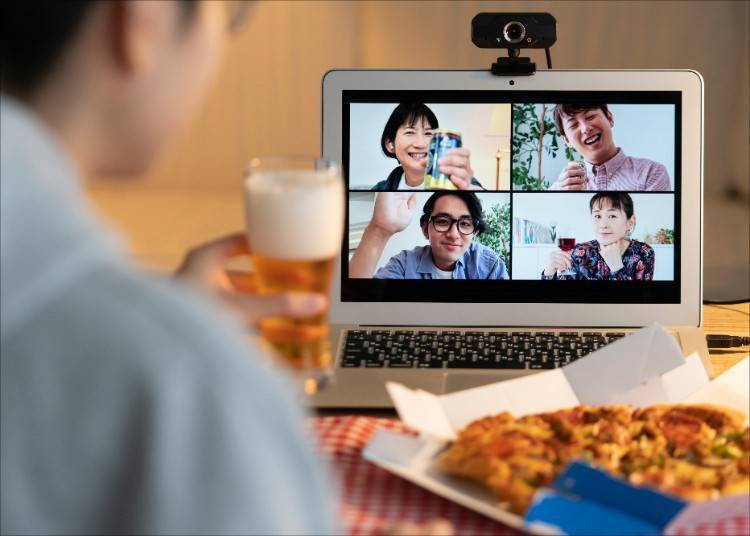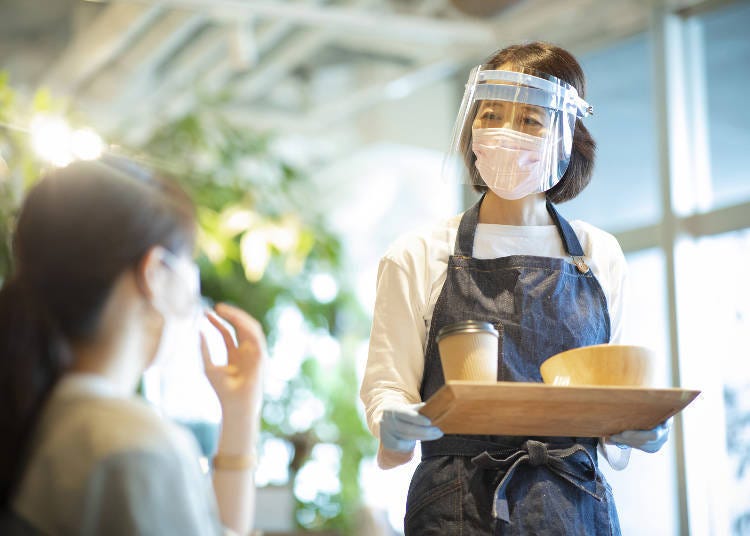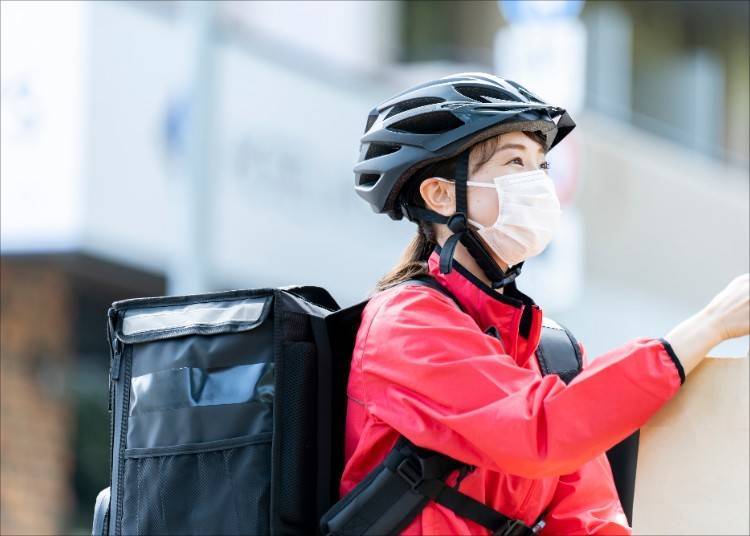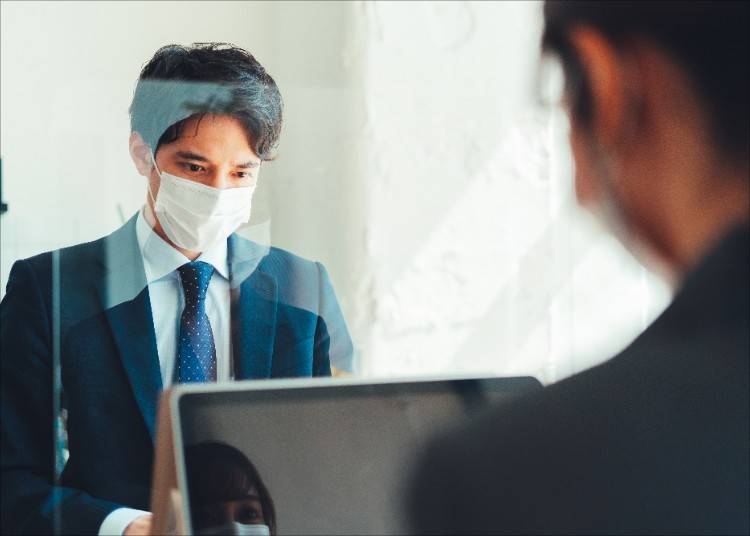
Japan’s New Normal: What Foreign Residents in Japan Find Shocking
- Written by: Ran Tanaka
To prevent the spread of Covid-19, the government in Japan has implemented policies requesting people to stay home, and for shops to shorten their operating hours, and the current situation has been continuing for over a year.
Having lived a suffocating and stressful life, it’s the same situation for foreign residents in Japan. Living in Japan away from their home countries, how do these people feel about living under “Japan’s New Normal”?
This time, the writer finds out from foreign residents who have been living in Japan for less than three years, and foreign visitors who have been in Japan for relatively short periods of time, to find out more about what they think about the shocking “Japan’s New Normal”! (The opinions below are personal opinions from the questionnaire conducted)
Even with the ambiguous “State of Emergency”, everyone still practices self-restraint... Japanese people’s mental resilience is amazing!

The opinions expressing the most surprise are about the adaptability of the Japanese people towards the new normal.
“Compared to the strict lockdowns in Europe and America, the state of emergency announced by the Japanese government is more ambiguous. However, almost all Japanese people stayed at home, and the people in the streets thinned out. In North America, if the government is not clear on their policy, I think there will be many people who will not care and will just continue to roam the streets” (Peru, 30s, female)
“Although there is no legal basis for requesting people to stay home and practice self-restraint, seeing people work together on their own accord is amazing” (Taiwan, 30s, male)
“Even at restaurants, no one talks in loud voices, and everyone keeps their masks on except when eating” (Thailand, 40s, male)
“The Japanese refrain from going out and spend their time at home instead, I felt that it was just as expected of the country of samurai! However, for foreign visitors, the state of emergency, requests to stay home, and social distancing measureas are really difficult to understand” (Italy, 20s, female)
Even without going into a lockdown like Europe and America, everyone cooperated together several times to show self-restraint, refraining from going out for non-essential reasons. Though it can be seen that many Japanese people think, “I don’t want to spread the infection to the people around me”, many foreign visitors find this way of thinking to be new and fresh.
Masks and alcohol disinfectant. Hygiene and prevention measures at shops are thorough!

“At restaurants and salons, they provide masks for free. At my hometown in America, guests will not use the masks and throw them back at staff, saying 'use it yourself!' LOL” (USA, 20s, female)
“Many facilities and shops have alcohol disinfectant available everywhere. I’m surprised by the high hygiene standards of the Japanese” (Brazil, 30s, female)
“Previously in a department store, I saw the staff at a store patiently handling a customer who was not wearing a mask. Even under such circumstances, I feel that the service mindset of Japan is incredible” (France, 20s, male)
The high service standards of facilities and shops in Japan have left a deep impact on many foreign visitors previously, and even under the new normal, these standards continue to be upheld.
The representative service of the new normal, “food delivery”, is also a very Japanese concept?

Takeout and delivery services have also become deeply ingrained into life under the new normal. Regarding Japan’s delivery services, there are some surprising comments.
“Delivery is good and quick! Almost none of my food items have spilled before” (Taiwan, 30s, female)
“The number of orders being left at the doorstep has increased. If it was any other country, it would be stolen. As the civic-mindedness of Japanese people is high, it’s a service that can be done here” (Venezuela, 20s, female)
Leaving food deliveries at the doorstep was implemented in view of hygiene and convenience, and it can be said to be a service that only came to be because of various forms of trustworthiness. This service of the new normal, which came about as a result of trustworthiness in the surroundings, is probably very Japanese indeed.
Where is the new normal? The problem with the unchanging working ways of Japanese people

Though Japanese people and shops have done commendably to combat the spread of Covid-19, their working style has instead garnered voices of shock.
“Though it can be said to be a working style under the new normal, my Japanese friends still continue to turn up for work. In the UK, almost all offices are closed, and I think it’s unfortunate that Japanese people still have to go to work at their offices during the pandemic” (UK, 30s, female)
“I don’t really feel the number of people taking the train decreasing” (Korea, 40s, male)
“At my company, as we still need to get approval stamps physically, answer landlines, and settle finances, employees still work on-site. I thought that Japan was a country with advanced IT infrastructure, and I am surprised that most administrative work is still done by hand” (Vietnam, 20s, female)
Though there are some industries and roles where there is not choice but to go to work, with physical approval stamps and paper receipts staying as the base, there are many who think there is no other choice but to continue this way to maintain the upkeep of the company, but for many foreign visitors, it is unacceptable.
Though it has been a while since everyone has started living under the new normal, there are many things that still continue to surprise foreign residents in Japan. Many are still confused about the way of working and the government’s response. We can only hope that foreign residents can soon assimilate into the new normal of living too.
Ran Tanaka is a Japanese writer and travel agency employee. After working as an editor for a major website, she switched to a travel company. She specializes in travel and food-related genres, and she has covered all 47 prefectures in Japan. She regularly travels to report on hidden gems, scenic spots, and the kinds of travel tips that only a travel industry insider can know.
*Prices and options mentioned are subject to change.
*Unless stated otherwise, all prices include tax.
Popular Tours & Activitiess
Recommended places for you
-

Kambei Sannomiyahonten
Yakiniku
Kobe, Sannomiya, Kitano
-

Kanzenkoshitsuyakinikutabehodai Gyugyu Paradise Sannomiya
Yakiniku
Kobe, Sannomiya, Kitano
-

Jukuseiniku-to Namamottsuarera Nikubaru Italian Nikutaria Sannomiya
Izakaya
Kobe, Sannomiya, Kitano
-
Appealing

Rukku and Uohei
Izakaya
Sapporo / Chitose
-

ISHIDAYA Hanare
Yakiniku
Kobe, Sannomiya, Kitano
-
Goods

Yoshida Gennojo-Roho Kyoto Buddhist Altars
Gift Shops
Nijo Castle, Kyoto Imperial Palace
-
Ad

5 Recommended Wagyu Yakiniku Restaurants in Tokyo: Signature Dishes, Premium Beef, and Secret Sauces
-

Farewell, Heavy Suitcases! Keisei Ueno’s New Service Makes Your Last Day in Tokyo Totally Hands-Free
by: Guest Contributor
-

To the Holy Land of Kawaii! Odakyu Tama Center Station Is Becoming a Dreamy Sanrio Wonderland
by: Guest Contributor
-

Where to Buy a Japanese Kitchen Knife? Why Travelers Choose MUSASHI JAPAN's 14 Stores in Tokyo, Kyoto, and Nara
by: Guest Contributor
-

A New Tokyo Landmark Is Coming in 2026, and It's Built for Modern Travelers
by: Guest Contributor
-
Ad

The Whisper of a 1,300-Year-Old History: Meet the Other Face of Nara at Night
by: Shingo Teraoka
-

Enjoy Kyoto Nightlife! 3 Kyoto Clubs Recommended for Foreign Visitors
by: WESTPLAN
-

8 Popular Jewelry Stores and Watch Shops in Tokyo (+Tax-Free Options)
by: Guest Contributor
-

Michelin & More: 6 Best Sapporo Sushi and Sashimi Restaurants Recommended by Locals!
-

NAMJATOWN: Ikebukuro's Theme Park of Magical Worlds, Scary Houses, and Delicious Gyoza
-

Best Outlet Malls Near Sendai: Shopping, Souvenirs, and Discounts
-

Top 3 Restaurants: Best Sushi in Dotonbori According to a Local Food Critic
- #best sushi japan
- #what to do in odaiba
- #what to bring to japan
- #new years in tokyo
- #best ramen japan
- #what to buy in ameyoko
- #japanese nail trends
- #things to do japan
- #onsen tattoo friendly tokyo
- #daiso
- #best coffee japan
- #best japanese soft drinks
- #best yakiniku japan
- #japanese fashion culture
- #japanese convenience store snacks













